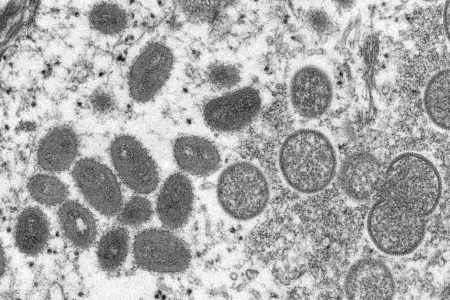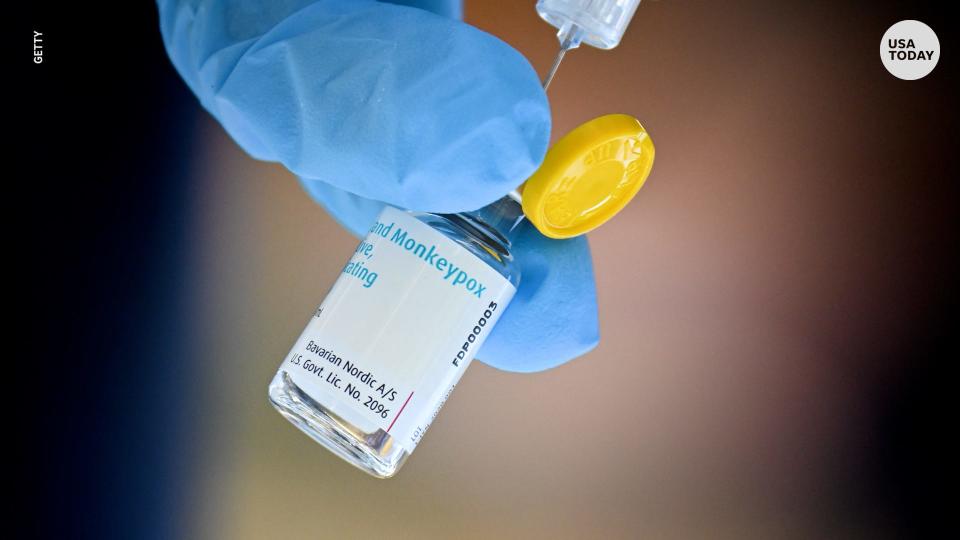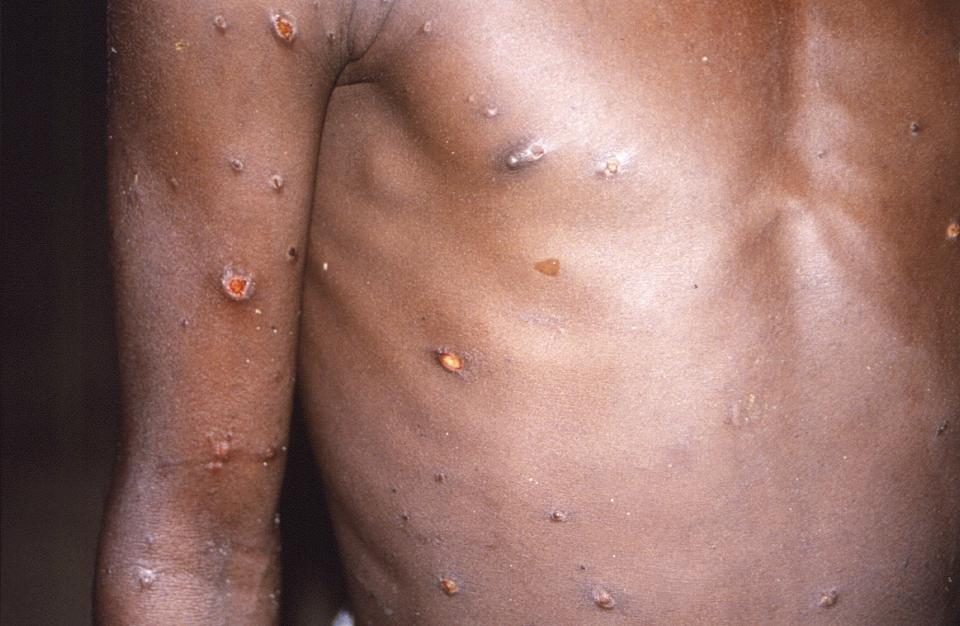Public health experts weigh in on monkeypox risk as schools, colleges begin fall classes

As students head back to class, another infectious disease outbreak is beginning to impact Greater Lansing.
Monkeypox — a virus in the orthopox virus family that is closely related to smallpox — has infected five Ingham County residents as of Wednesday, according to state data. Eaton and Clinton county officials have yet to report a probable or confirmed case, although single cases have been reported in Livingston, Ionia and Montcalm counties. There are 126 cases across Michigan.
Due to the close, in some cases intimate physical contact necessary to transmit monkeypox, Ingham County Health Officer Linda Vail said that universities should be on highest alert for monkeypox spread more so than K-12 schools.
Michigan State University students, ahead of next week's move-in days, are being told the risk in the community is low and they should take precautions like handwashing as well as paying attention to flu-like symptoms, in messages sent to new and returning students this week.
The virus can consist of fever, chills, swollen lymph nodes, aches and some respiratory symptoms. And, often later on, patients can develop a rash marked by painful blisters and scabs.
Michigan State University officials are working with county health providers to assess the risk and any additional precautions for the school year and can offer assistance including meals, housing and coursework for students and employees who may become infected, said Dan Olsen, a spokesperson for the university. Testing can be requested through the university's health care system while vaccinations need to go through county or state health departments.
MSU also is recommending students and staff wash their hands frequently, avoid skin to skin contact with people who have the MPV rash, consider the risk of attending events where skin to skin contact may occur, such as crowded parties and talk to their partner about any recent illness and watch for unexplained rashes on the skin.
Vail said she is awaiting guidance from the state regarding how to advise school districts and universities on the monkeypox outbreak. In the meantime, however, she said it’s important for the general public to be aware of situations where transmission is more likely than others.
Monkeypox spreads from person-to-person through direct contact with infectious rash, scabs or body fluids. It also can be spread by respiratory secretions during prolonged, face-to-face contact or during intimate physical contact, such as kissing, cuddling or sex.
In some cases, Vail said the virus can also be transmitted through clothing or blankets that have come in direct contact with infected sores or secretions.
“Monkeypox is much more difficult to transmit (than COVID),” Vail said. “We don’t expect lots and lots of cases. They’ve been coming, but they’re coming very slowly because the transmission really does require that direct, skin-to-skin contact. But keep in mind, it’s going to be those kinds of activities.”
Vail is advising colleges and universities to take multiple measures to prepare themselves, and students, for possible on-campus spread. Among those recommendations, she suggested: widespread messaging, equipping campus health centers to provide high-quality care and educating potential high-risk groups.
Monkeypox often begins with flu-like symptoms. Then, some 1-4 days later, is when the rash tends to develop. According to the CDC, the illness can in all last about 2-4 weeks.
“That’s the problem,” said Subhashis Mitra, Michigan State University’s interim director of infectious diseases. “After the initial part, people feel better. But then they are very transmissible because they have the rash. Then, they recover — so they are well enough that they can kind of go back to their regular activity — and that’s when it really gets spread in the right setting.”

According to the CDC, national data show gay, bisexual and other men who have sex with men comprise the majority of cases in the 2022 monkeypox outbreak. But though the virus can be transmitted during sexual activity, it’s not a sexually transmitted disease.
“Remember, there are small numbers of cases and it starts in a community and spreads in that community before it gets out,” Vail said. “I like to say let’s imagine it had started in the Amish community. We would see it primarily with the Amish community until it started to spread out.”
Infectious disease experts anticipate monkeypox will eventually spread into the wider general population. Vail said it’s important that people recognize that viral transmission is more likely in certain circumstances as opposed to others.
“Let’s think about fraternity and sorority parties. Let’s think about what happens at a lot of the bars late at night in East Lansing," she said. "They get crowded, people get sweaty, and there’s a lot of people that are bumping up against each other. If somebody had monkeypox sores, and they happened to bump against another person, that’s a potential for transmission.”
However, while K-12 schools might have less risk, it doesn’t mean transmission can’t happen there if someone comes to school infected.
Mitra said some COVID-19 prevention measures — like wiping down surfaces and improved classroom ventilation — can also be important tools against monkeypox.
“That should be the routine. That shouldn’t be the exception, it should be the rule,” Mitra said. “Whether (schools) do it or don’t do it is a different question, but those guidelines haven’t been relaxed.”
Due to the viruses’ genetically similar makeups, smallpox antiviral drugs and vaccines have proved effective at treating monkeypox, both as preventive and prophylactic measures. But an approved vaccine, Jynneos, is in limited supply in Michigan and across the country, after millions of doses in the federal government’s Strategic National Stockpile expired, The New York Times reported earlier this month.

Still, Vail said limited vaccination appointments are available through the county for individuals that take and pass a state eligibility screening. Eligibility has now gradually extended to some people before the point of exposure, she said.
“It’s time that supply went up,” Vail said of the vaccine. “It’s like, how about we get supply in while we still have some concern and some demand for it?”
Contact reporter Jared Weber at 517-582-3937 or jtweber@lsj.com.
This article originally appeared on Lansing State Journal: Public health experts assess monkeypox risk for K-12, college students

